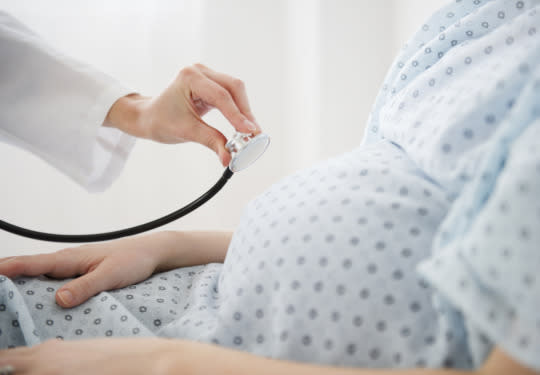Hospitals Are Secretly Drug Testing Pregnant Women

Pregnancy, labor and delivery can be stressful enough without worrying that the hospital you’re at will be drug testing you or your newborn infant without your explicit consent. It’s even more problematic when it happens at a higher rate to poor women who already have a difficult time accessing prenatal care.
Investigative news site ProPublica recently reported on birth in Alabama and how many hospitals in the state are drug testing new mothers and infants without their explicit consent, landing many of these women in court and sometimes even jail.
More: 8 Things you never knew about surrogacy
Alabama is known for having one of the strictest chemical endangerment laws in the country, which targets drug use in pregnancy. While drug use during pregnancy is certainly a serious thing, the potential results of being charged with chemical endangerment are no joke. Women can expect anywhere from one to 10 years in prison if a baby is exposed to drugs in utero with no ill effect, 10 to 20 years if the baby shows signs of harm and 10 to 99 years if a baby dies.
More: The Mamafesto: The shackling of women birthing in prison needs to end
Hospitals in Alabama have been using this law to allow them to essentially secretly drug test pregnant or birthing women and their newborns. ProPublica reached out to all 49 hospitals in the state that deliver babies, but 42 of them declined to discuss their policies, and the rest were pretty tight-lipped about what actually happens. However, from speaking with women who’ve birthed at some of them and obtaining paperwork for others, ProPublica was able to get a better idea of just what’s going on and why a perhaps well-intentioned law is having dangerous effects.
A lot of the required paperwork at these hospitals isn’t very clear, and many don’t even mention drug tests, but rather general “blood tests,” so women are signing off on it without a second thought. Imagine coming to the hospital in full labor, being asked to review and sign almost 20 pages of intake forms while focusing on breathing through the pain. It’s a sneaky way for many hospitals to include drug testing under the guise of normal care, even when it’s not necessarily.
Casey Shehi, who gave birth at an Alabama hospital in 2014, was unknowingly drug tested. She wasn’t told she would be drug tested and signed something that gave a vague description of consenting to “examinations, blood tests … laboratory and imaging procedures, medications, infusions, nursing care, and other services or treatments …” but never explicitly gave an OK to drug test. Yet after a urine-based drug test, traces of benzodiazepine were found (Shehi had taken a Valium to help her sleep during labor), she was turned over to child welfare and law enforcement, where she was charged with chemical endangerment. Her case was eventually thrown out, but Shehi is not alone in being essentially harassed because of something like that (as opposed to an actual drug addiction). ProPublica also uncovered cases of false positives, where women were unknowingly drug tested and found “positive” despite not having any drugs in their system. They then had to deal with the repercussions of the false positives and the devastating impact it had on their lives.
More: Mother who had forced episiotomy fights back in court
Of course, nobody wants to keep having babies born addicted to hard drugs or have mothers incapacitated by drug abuse, but is this strict, penalizing and secretive way really the way to go about it?
Many low-income women are already getting less prenatal care than their higher-earning counterparts, and many may be less inclined to access care for fear they will be drug tested and have their babies taken away or end up in jail. There has to be a better way to help both mothers and their babies without holding the threat of jail above their heads. Treatment and support should be used instead of hidden testing and underhanded tactics. The state of Alabama and the hospitals involved can pretend to have the interest of the babies at stake, when deceptive policies like these essentially scare off many women from even accessing much-needed prenatal care in the first place (or disclosing that they may have a drug problem that they would like help with).
There needs to be a different way, as Alabama has proven that its current system doesn’t really work.—Avital Norman Nathman
More: The Mamafesto: Real maternity leave horror stories show moms need better
(Photo: Getty Images)
